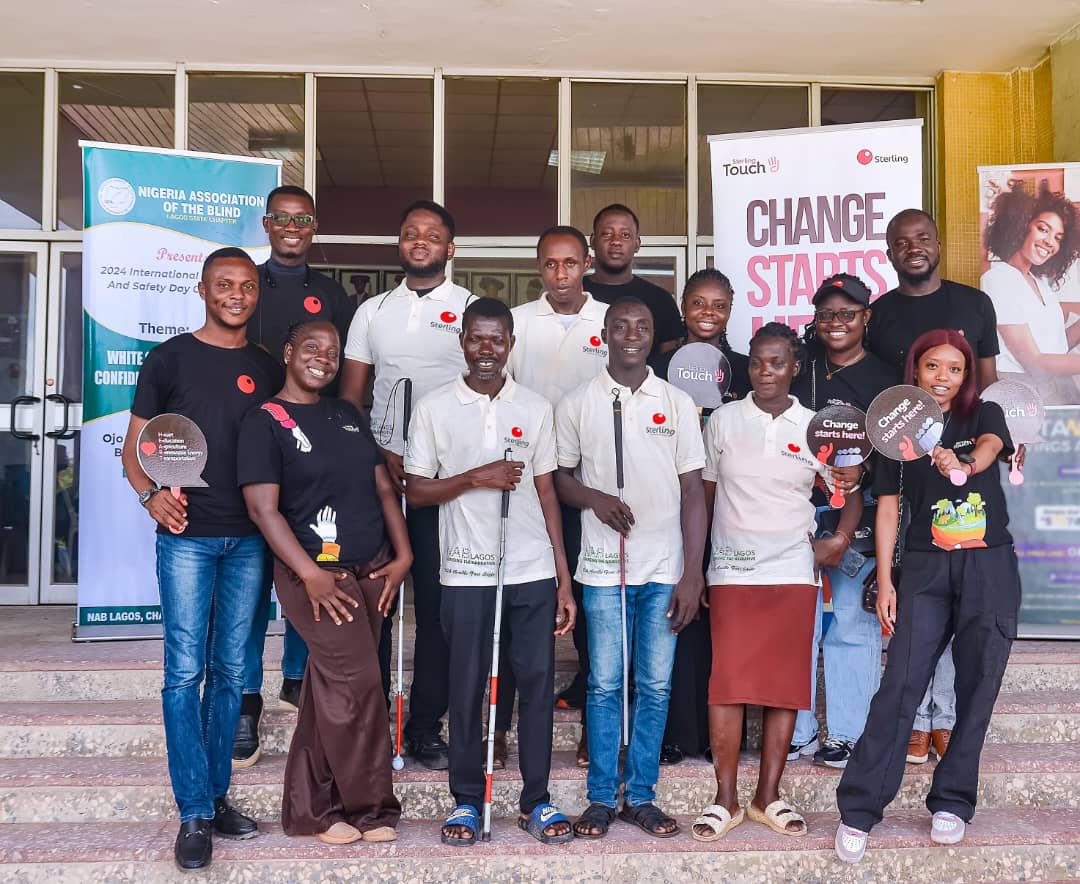
Recently, Sterling Bank Plc, Nigeria’s leading commercial bank unveiled a partnership with Opportunity Network, a business matchmaking platform with headquarters in Barcelona, offices in London and New York City and representatives in over 30 other countries. The partnership forms part of an effort by the bank to put its customers on a global platform and enhance their ability to do business in a collaborative manner with other investors across the globe.
Adriana de la Cruz Duffo, Opportunity Network’s Regional Director for Sub-Saharan Africa, in this interview, says the collaboration with Sterling Bank will help to grow Nigeria’s Gross Domestic Product (GDP) through the five key sectors of the economy already identified in the bank’s new business model. The key sectors which will drive investments by the bank are health, education, agriculture, renewable energy and transportation (HEART).
What is Opportunity Network all about?
Opportunity Network is an exclusive deal matchmaking platform for vetted companies to share and connect to global trade opportunities, as well as strike reliable investment deals.
For instance, there are existing opportunities for any Nigerian company looking for an opportunity to export soya beans and other commodities, or any company looking for investment to grow. There are also deals for any company in tech, healthcare, education, oil and gas and any company in Nigeria looking for buyers, suppliers, distributors or clients of any sort.
Sterling Bank, as our partner, invites their business clients to the platform for them to publish their deals, looking for investment, partners or clients. Member companies in Nigeria can also search amongst the thousands of deals already posted by any of the global members on the platform.
Once someone connects to a deal posted on the platform, both parties will receive an email and then go into discussion privately to work out the details of the deal. It is not a transactional platform, it is just a deal match-making platform, so there are no intermediary or transactional fees on any deal concluded between two members.
What inspired the creation of Opportunity Network?
Opportunity Network started at Columbia Business School where Boston Consulting Group had sponsored Brian Pallas, Managing Director of Opportunity Network to do his MBA after spending two years at the firm in Milan. There, Pallas created a monthly newsletter where members of the Business School’s Family Business Club could anonymously list the business transactions they were interested in.
The idea grew very fast and Pallas decided to create a tech platform in order to allow it to grow. Since its formation in 2014, it has helped to solve important problems and there are huge opportunities for businesses all over the world.
Now, people don’t have to travel in order to find these opportunities anymore. Sometimes CEOs don’t have the knowledge of how to do business in new countries. As a business consultant, I have been in Nigeria for many years and helped European businesses succeed in the Nigerian economy. In many cases, the conversation starts with trust because some of those companies did not know how to do business in Nigeria or who to partner with.
Opportunity Network solves the trust issue. It bridges the cross border gap and it allows anyone in the world to be able to do business independently without the need to travel or with little knowledge about a particular market.
What were the challenges at the beginning?
The initial challenge was the huge investment needed in technology to ensure scalability is a safe way, making sure that every single member on the platform was vetted properly and represented a trustworthy and reliable company. Many of our members run multimillion-dollar companies and are CEOs of some of the biggest companies in the world. They are looking for an opportunity to fund or raise millions of dollars. They are looking to sign important trade deals.
Also, the whole idea of matchmaking only works when there is a lot to choose from. Opportunity Network’s first joins where the family office club members at Columbia and then expanded to other family office clubs at Harvard and other leading schools.
The next step was to make the platform truly global so the CEO, Brian Pallas, decided to partner with banks who offered scalability and could introduce the best corporate clients. Most importantly, banks have a Know Your Customer (KYC) process and can ensure that they meet our requirements. The banks help us to ensure that the clients that come on to the platform are trustworthy and reliable.
At the end of the day, the more companies that come onto the platform, the more deals are posted, the more the connections and the more deals are closed.
What does this portend for African and Nigerian businesses?
The whole idea is to help companies do business with partners that are not often easy to access. I talked earlier about the challenges that investors face and how Opportunity Network bridges those gaps. When you are on Opportunity Network, you have immediate access to 18,000 CEOs and to thousands of deals posted from the comfort of your office.
European and American members for instance, are always asking us to partner with banks in regions where they have trouble entering. Investors want to do business in Nigeria but they do not know how to proceed and they know that if we bring Nigerian companies onto the platform, these will be reliable vetted clients of Sterling Bank for example, companies they can trust.
On the Nigerian side, I am personally involved because I have been here for many years and I know the possibilities and potential of Nigerian businesses and the opportunities they have on the platform.
Moreover, Opportunity Network’s mission is to help every country’s GDP growth through private sector development and most importantly to contribute to job creation. Is it our vision to create a hundred million jobs globall. If we help companies grow, these companies will employ more people, will partner with companies that will, in turn, hire people and all of these will eventually help the GDP of the country to grow.
Why are you partnering with Sterling Bank?
We are partnering with Sterling Bank because it is an innovative trustworthy bank that understands the benefits of using technology to help its customers grow. It is a bank that is thriving on technology to improve performance and for example, recently launched a fantastic application for their customers.
Also, Sterling Bank’s growth strategy as a bank fits perfectly with our vision. It is one of the banks in Nigeria that is truly helping diversify the economy beyond oil and gas. The bank is supporting what they call the HEART sectors (Health, Education, Agriculture, Renewable energy and Transport) and these are five incredibly important sectors to grow the country’s GDP and create employment. They are also sectors that international investors are interested in even more than oil and gas.
Looking at your partnership with Sterling bank, what do you think is the potential is for the Nigerian market and economy at large?
We are looking at bringing the first 200 selected Sterling Bank’s customers over the next few months and grow them. We are carefully selecting these companies across the different sectors that can truly impact the development of Nigeria and investors are interested in. Key companies in oil and gas, but also, agriculture, healthcare, education, transportation and renewable energy.
So what excites you about the future of Opportunity Network?
What excites me the most is to truly see a global economy impacted by technology. It is to see Opportunity Network being the enabler of all the best companies across sectors and geographies doing business through the platform and I believe we will achieve it. I believe that Opportunity Network will impact development, the GDP of the countries where we are actively operating and I believe we will able to create a hundred million jobs directly and indirectly in the next few years.
What has been your experience working with Nigerian businesses?
It has been mostly very positive. I came to Nigeria for the first time in 2012, and it was quite different, things have improved immensely over the last few years. I have been helping European companies do businesses in Nigeria across sectors, focusing mostly on a technology that could help and develop in different sectors and it has been an amazing experience.
In every single project, I have worked with Nigerians and I have always insisted on building Nigerian teams, not expat, to run those projects after I brought them in. I have had the chance to train junior teams of Nigerians in order to sell or continue growing the different companies and it has been a very pleasant experience. I think that there are so many misconceptions about Nigeria and I believe that it is a great country to do business in, as long as you do business with the right partners and that is where Opportunity Network comes in basically.










